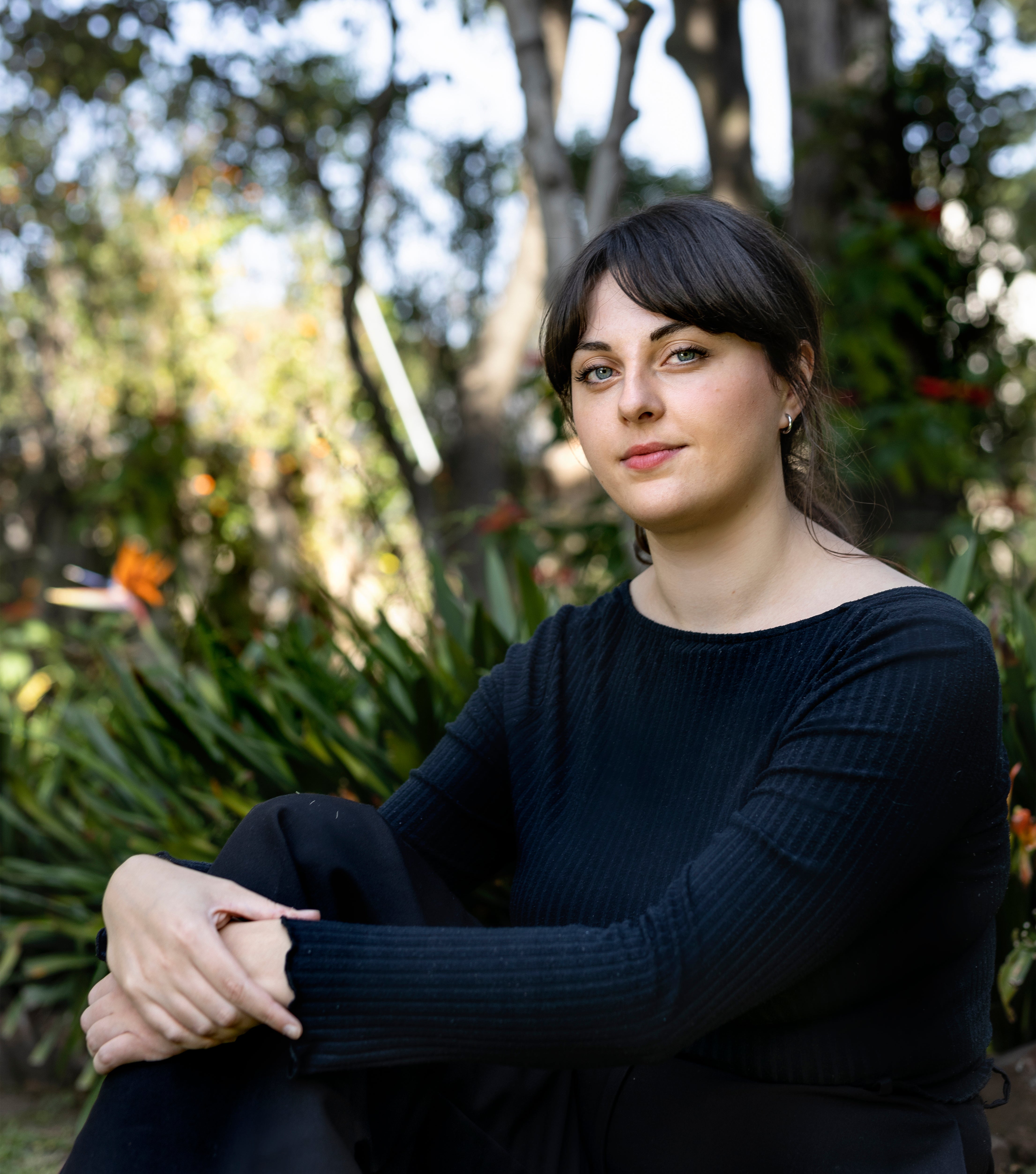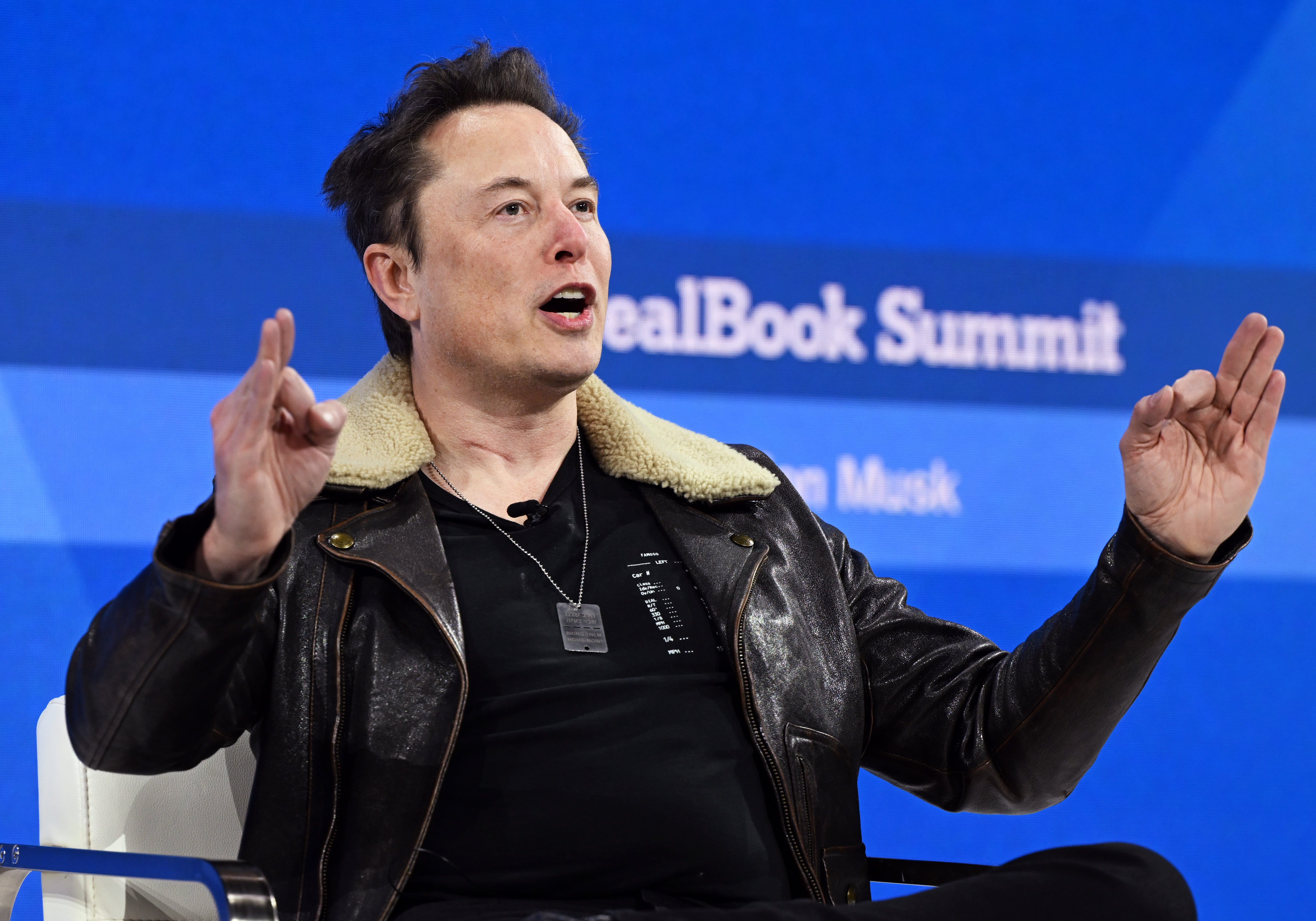Get £1600 a month to do ‘nothing’ – welcome to an AI future where nobody works
As concerns grow over AI surpassing human abilities within two to three years. Polly Dunbar explores whether universal basic income could be the solution in a world without traditional jobs


Every week, £282 appears in Elinor O’Donovan’s bank account. The 27-year-old is a multidisciplinary artist who sculpts and makes films and installations, but the money isn’t payment for her work – nor is it a form of benefit or a gift from a generous benefactor. It isn’t means-tested and it comes with no obligation to produce anything in return; how she chooses to spend it is entirely up to her.
It may sound too good to be true, but O’Donovan is one of 2,000 artists and cultural workers currently participating in a basic income pilot scheme in Ireland. In 2024, visual artists, musicians, filmmakers, writers, actors, dancers and 13 circus artists were chosen at random by the Irish government from more than 8,000 eligible applicants to receive the money each week for three years, no strings attached.
For O’Donovan, a former part-time receptionist, it has been life-changing.
“It’s amazing,” she says. “I’ve been able to spend more time working on my art. Knowing the money is coming for three years is such a huge relief. My wellbeing has improved because there’s security. I can take a breath and really focus on what I want to achieve.”
The Irish scheme is just one of hundreds of similar trials taking place around the world, part of a growing movement calling for universal basic income (UBI): an unconditional, standard sum paid to everyone in society on a regular basis. Scotland and Wales have both trialled small-scale versions. Meanwhile, if backed, the first English pilot would see thirty people in Jarrow in the North East and East Finchley in north London be given £1600 a month to see what effect it has on their mental and physical health, as well as whether they choose to work or not.
The idea of a universal income for all has been floating around since the days of Thomas More, who mentioned it in Utopia in 1516, and many still regard it as a radical – not to mention unaffordable – concept. Proponents, who include Manchester’s mayor Andy Burnham, argue that it is a practical solution to the challenges of the modern world, and that it could ultimately save governments money by reducing social ills.
The most popular model proposes continuing a system of benefits for the likes of housing, childcare and disability, alongside UBI, to ensure nobody would be worse off. UBI would replace parts of the tax system – most likely, the tax-free personal allowance would be removed, so people would pay tax on the entirety of their earned income. The idea would be that those on lower to middle incomes would more than recoup this in the universal payment.

Debate continues to rage about how all this would work in practice. Some critics, including Dr Luke Martinelli at the University of Bath, claim it would make those on the lowest incomes worse off by taking money currently spent on them and giving some of it to those on higher incomes who don’t need it. Others say it would create even greater inequality, as the well-off would have more money than ever before.
What’s clear is that the way we work is being transformed at a dizzying rate. The reason calls for UBI schemes are growing more urgent is that the impact of AI on jobs is now impossible to ignore. In the first year since ChatGPT was launched 14 per cent of workers in the US lost their jobs to “robots”, according to one estimate.
As tech leaders including Elon Musk have been warning, the biggest threat from AI is less likely to come from an army of robots taking over the world than from the loss of as many as 300 million jobs, according to Goldman Sachs’ chilling prediction. Once, automation was designed to replace work that was physically demanding or dirty; now, it’s coming for middle-class professions. Highly skilled and highly paid jobs such as law, finance and medicine are at greatest risk.
Sam Altman and other tech leaders joined world leaders and policymakers to debate AI’s impact on security, economics, and governance at the Paris AI Summit in February amidst warnings are that AI models may surpass human capabilities "in almost everything" within two to three years.
The implications for society could be catastrophic, leading to an urgent rethink of the basic social contract of how we work and earn. With millions out of work it would be impossible to fund vital services via the tax system which could cause the collapse of our basic infrastructure. Will Stronge, director of the think tank Autonomy, which is behind the proposed pilot in Jarrow, says we’re living in an “age of crisis” and that a radical change is necessary.
“Our society is going to require some form of basic income in the coming years, given the tumult of climate change, tech disruption and industrial transition that lies ahead,” he says.
“The current welfare system isn’t fit for purpose: it’s based on sanctions – punishing people who don’t behave in a certain way – which has been proved to be counterproductive. All evidence shows that basic income would directly alleviate poverty and boost millions of people’s wellbeing. The potential benefits are just too large to ignore.”

Perhaps the first question to spring to mind about receiving free, unconditional money is whether we would all just laze around. This argument – that it would disincentivise work – is chief among those who point out that a nation of job-quitters could also have serious implications for mental health. But some have hinted at far more intriguing possibilities.
Musk recently said he believes a job in the future could be for “personal satisfaction” – an idea that seems to be borne out by the latest findings from UBI schemes around the world.
“When people are given a basic income, there’s no significant reduction in paid work,” says Cleo Goodman, Autonomy’s basic income lead and co-founder of The Basic Income Conversation.
Fascinatingly, this is true. In 2017 and 2018, unemployed people in Finland were given payments of around £500 a month, which continued even if recipients subsequently got a job. People receiving the payments worked an average of 78 days between November 2017 and October 2018 – six days more than those on unemployment benefits.
The trial also found that they reported a significant boost to their mental health, wellbeing, and level of confidence about the future. The removal of uncertainty was a major factor, as was “the power to say no to low-paid insecure jobs”, according to professor Helena Blomberg-Kroll from Helsinki University, who led a study into the findings.
The scheme also gave some participants “the possibility to try and live their dreams”, pursuing work they felt passionate about rather than having to take the first offer available due to an urgent need for a pay packet. This suggests that in a world in which money wasn’t the most important driving factor, more people would choose jobs based on enjoyment. This has the potential to transform the way we view certain careers; for instance, someone who would make a brilliant maths teacher might be more likely to pursue that option instead of going into banking, elevating teaching as a desirable path whereas currently, its lower pay lessens its prestige.
In the US, findings have been similar. The state of Alaska has been running a form of UBI since 1982, in which every resident, including children, receives an annual payment from the Alaska Permanent Fund, which takes its revenue from oil and mining leases. The payment varies depending on oil prices: in 2021 it was $1,114 (£887), and last year it surged to $3,284 (£2,615).
Ioana Marinescu, a professor at the Penn School of Social Policy and Practice, who reviewed the scheme, said: “What we found was astonishing, which is that on average, Alaskans still work at the same rate as comparable states.”
“When you speak to people in the pilots, they explain having a consistent income enabled them to look for work which would suit them better in the long term,” says Goodman. “They also had bargaining power; the ability to say no to poor-quality work. Parents of young children had more time to spend with them and young people could stay in education for longer.”
In Alaska, the UBI scheme has had a positive effect on the local economy, with businesses such as cafes and shops flourishing, enabling them to hire more employees.
O’Donovan has experienced this cascading impact in microcosm. Receiving her basic income has enabled her to “contribute to a circular economy”, she says. “I made my first film this year and was able to hire other artists to work with me, so I’m investing the money back into the art ecosystem.”
In disadvantaged communities, such as in Stockton, California, where $500 per month was given to 125 people, trials have enabled participants to afford basic necessities, such as food, clothes and utility bills.
A study of the period from February 2019 to February 2020 determined that full-time employment rose among the trial group in Stockton, and that their financial, physical and emotional health improved. “Before, I was paying a lot of bills and didn’t know how I was going to eat,” said participant and grandmother of nine Laura Plummer. “It’s like being able to breathe.” Removing this anxiety not only enhances the quality of life, but it also allows people to evaluate their options more calmly.
In Ontario, Canada, a pilot designed to help 4,000 people on low incomes was cancelled after just one year, but in that time, 74 per cent reported more participation in physical activity, 83 per cent reported better mental health, and 79 per cent reported better wellbeing.
But the concept of UBI also poses the question of how those already fortunate enough to be able to pay bills and live comfortably might be affected. If our basic financial needs were met, how would we behave?
“Many people we speak to talk about how they’d spend their time differently,” says Goodman. “A lot say they want to reduce their working hours because there are other things they wish they had more time to do, whether that’s a business they’re trying to start, a family they’re raising, retraining to change careers or volunteering in their community. People would love to prioritise unpaid things that are what life is about.”
In 2020, Japanese billionaire Yusaku Maezawa announced in a tweet that he would give away 1 billion Japanese yen – around £7m – to 1,000 random Twitter followers. Describing the move as a “serious social experiment”, he said he wanted to test the premise of a basic income. Each recipient had to fill in follow-up surveys asking what impact the cash was having on their lives, and initial results showed that they were an average of 3.9 times more interested in launching a new business. There was also a decrease in divorce rates, from 1.5 per cent to 0.6 per cent.
If entrepreneurialism would almost certainly receive a boost from UBI, it’s reasonable to speculate that the more difficult to quantify altruism would, too. The 2010/2011 Citizenship survey found that “work commitments” were by far the biggest reported barrier to volunteering, suggesting that UBI could have significant implications for voluntary work. Some models of UBI include a public “contribution contract”, which must be signed before people receive it (making it not entirely unconditional).
Clearly, for any UBI system to work in reality, enough of the population would still need to be earning at a high enough level to pay for it through their taxes.
O’Donovan hopes the Irish Basic Income for the Arts scheme will snowball into a universal system. For the arts alone, she can see massive potential benefits. “People are always questioning the value of art because what it offers society can’t be reduced to numbers,” she says. “But its value is immense, and UBI would enable it to flourish.”
She sees being a recipient of the grant as carrying a responsibility, which recently compelled her to become secretary of Praxis, the Irish artists’ union. “The logic was that I have this time that’s paid for, so what can I do that will support other artists?” she says. “These pilots are showing that we could be living in a way that’s genuinely collective.”
Join our commenting forum
Join thought-provoking conversations, follow other Independent readers and see their replies
Comments
Bookmark popover
Removed from bookmarks